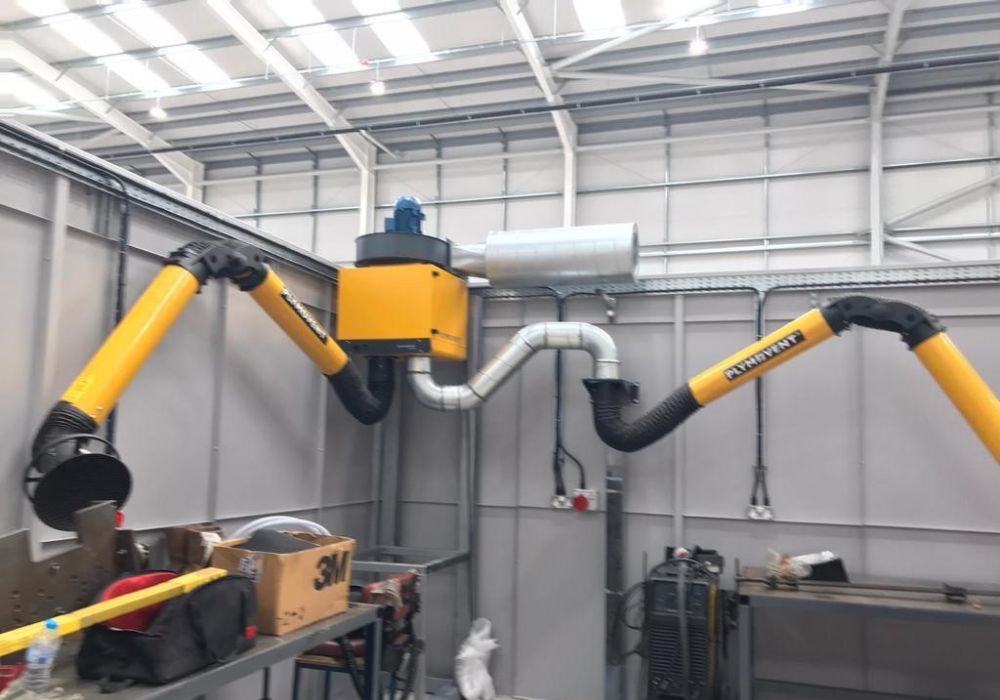Why Your Workshop Needs a Local Exhaust Ventilation (LEV) System: Compliance, Health & Productivity
In any modern workshop, manufacturing facility or fabrication environment the air your employees breathe is just as important as the machines they operate. Installing a well-designed Local Exhaust Ventilation (LEV) system is not simply a “nice to have” – it is a strategic investment in legal compliance, worker health and operational productivity.
What is an LEV system and how it works
In basic terms an LEV system captures airborne contaminants (dusts, fumes, vapours, mists) at or near their point of origin, and removes them safely before they can spread across the workplace. Standards such as the Health & Safety Executive’s guidance on common processes and sources confirm that understanding the source of emission is key to successful control. HSE+1
An LEV system typically includes:
- A capture hood, arm or enclosure positioned close to the source.
- Ducting that transports contaminated air away.
- Filtration or other treatment (where required) or safe exhaust to atmosphere.
- A fan or blower that drives the airflow.
- Monitoring and controls to ensure performance is maintained.
When properly designed, the LEV system becomes a silent but essential part of your workshop infrastructure.
Legal & regulatory requirements in the UK
Under the Control of Substances Hazardous to Health (COSHH) regulations an employer must ensure that exposure to harmful substances is prevented or adequately controlled. Installing and maintaining an effective LEV system is often the engineering control measure required.
Moreover, for LEV systems there is an obligation for regular examination and testing. A well-specified system must be “thoroughly examined and tested” at least every 14 months (or more frequently if the process demands).
Failure to comply may mean enforcement by the HSE, higher insurance premiums, or – most seriously – increased health risks to workers.
Risks of inadequate ventilation: health, productivity & compliance
When airborne contaminants go uncontrolled, the consequences can be significant:
- Health risks: Inhalation of fine dust, welding fume, solvent vapours or mist can cause asthma, chronic obstructive pulmonary disease (COPD), cancer and other long-term conditions
- Productivity and quality loss: Poor air quality can lead to increased absenteeism, worker discomfort, lower morale, more rework and scrap.
- Compliance and legal risks: Without proper control the employer may fail in their duty under COSHH, LEV inspection requirements and general health & safety law.
- Cost implications: Inefficient or poorly designed systems use more energy, may require greater maintenance, and could incur remedial costs or downtime.
Benefits of a properly designed LEV system
When your workshop has the right LEV in place you unlock multiple benefits:
- Safer workforce: Capturing contaminants at source ensures employees are working in a healthier environment.
- Confirmed compliance: Proper design, commissioning and testing provide documented evidence of control measures.
- Better productivity: Workers who can breathe easily and rely on clean air are more efficient; fewer stoppages due to faulty extraction.
- Controlled energy use: Targeted extraction at source uses less air movement (and thus less energy) than general ventilation of the whole space.
- Improved plant life and product quality: Dust and contaminants can impair equipment performance and finish quality; extraction helps protect machines and processes.
Key considerations when selecting and commissioning your LEV system
Choosing an LEV system is more than ticking a box. The following aspects are vital:
- Identify the contaminant: Is it dust, fume, vapour, mist or biological agent? Each requires different capture hood design, filtration or exhaust method.
- Capture hood placement and design: The nearer the hood is to the emission point and the more appropriate its geometry, the better the capture.
- Ducting and fan specification: Correct sizing is critical to maintain airflow without excessive losses or blockage risk.
- Filtration or treatment if required: Some vapours or gases may need activated-carbon, HEPA or other specialist media.
- Commissioning and testing: After installation a competent engineer must measure airflow, inspect system integrity, and issue a test report.
- Maintenance and monitoring: Filters should be changed, airflow re-checked, and inspections carried out at regular intervals to maintain performance.
- Future flexibility: Consider process changes, additional equipment or large-scale modifications in your design.
Why choose LEV Engineering Limited
With more than 25 years’ experience in designing, installing, servicing and testing LEV systems across the UK, we at LEV Engineering Limited can provide a truly turnkey solution. Our BOHS P602-accredited engineers understand the legal framework and can guide you from risk-assessment to full system hand-over. We cover everything from extraction arms, push-pull systems, ductwork and fans, to maintenance and testing contracts.
Our nationwide coverage ensures wherever you are we can deliver prompt site surveys, bespoke design, professional installation and rigorous commissioning. Plus our service contracts mean your system remains effective for years to come.
Contact Us Today
Don’t leave the health of your workforce, productivity or compliance to chance. Contact us today and let our engineers identify whether your current ventilation strategy is meeting its objectives. We’ll provide a clear recommendation, no-nonsense advice and a practical way forward.

